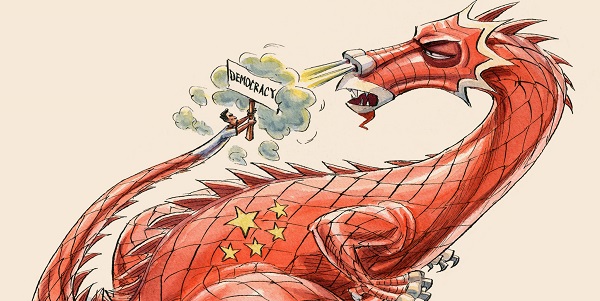Hong Kong-China Relations

From Current Affairs Notes for UPSC » Editorials & In-depths » This topic
IAS EXPRESS Vs UPSC Prelims 2024: 85+ questions reflected
Why is Hong Kong significant?
- Hong Kong was handed over to China in 1997 under the ‘one country, two systems’ principle. For much of the last 24 years, this special administrative region of China has defied the expectation that this administrative model would crumble.
- It has successfully turned out as an unexpected democratic enclave inside an authoritarian country like China.
- It is also an important financial centre and is valued by the international firms as a gateway to the Chinese market.
- However, recent developments have put unprecedented stress on its administrative model.
How is China tightening its grip on Hong Kong?
National Security Law
- The National Security Law was passed on June 30th, 2020 in the wake of the 2019 Hong Kong Protests.
- Notably, it established 4 crimes:
-
- Secession
- Subversion
- Terrorism
- Collusion with foreign organizations
Fallouts of this law:
- The Hong Kong Police has been using this law to crack down on any type of dissent in the SAR.
- It led to Apple Daily, a well-known pro-democracy newspaper, being put out of publication.
- The Hong Kong government has started revising academic curriculum to reduce the focus on liberal values and to encourage ‘patriotism’.
- The universities had cited the new national security law as the reason behind their recent actions.
- On December 23rd, 2021, the ‘Pillar of Shame’ statue was quietly removed from the Hong Kong University campus. It is an artwork commemorating the Tiananmen Square Massacre which took place on June 4th, 1989 and installed in 1997.
- Following this, Tiananmen Square memorials were removed from 3 other universities.
- This year, the annual vigil at the Victoria Park to commemorate the 1989 incident didn’t take place as the police had cordoned off the park. This annual event is considered as a symbol of freedoms enjoyed by the people of Hong Kong.
Changes in electoral system:
- Another big change since the handover is the radical overhaul of the SAR’s electoral system.
- The changes have reduced the proportion of directly elected representatives in the legislature.
- A new candidate review committee has been put in place to ensure that only ‘patriots’ can participate in the elections.
- On December 19th, the polls saw the lowest voter turnout since 1997. Many of the pro-democracy political figures were either unable to contest or boycotted the elections.
- The recent polls stands in stark contrast to the December 2019 district elections, held after the protests, where the Oppositions swept the polls. In the recent elections, the pro-Beijing candidates swept the polls.
What is the way ahead?
- July 1st, 2022, will mark 25 years since the handover of Hong Kong to China. This anniversary is of special significance:
- It marks the halfway point in the 50 years guarantee, made in 1997 by Deng Xiaoping, to keep Hong Kong’s capitalist system and way of life unchanged (for 50 years). This guarantee is enshrined in Hong Kong’s Basic Law.
- The recent developments reflect Beijing’s perception that it isn’t bound by the 1997 commitments any longer.
- However, the financial status of the SAR is bound to remain intact as Beijing wouldn’t want to compromise the access provided by Hong Kong to the Chinese market and there is also the lure of Hong Kong’s commerce.
- At the same time, these recent changes’ impact is being felt elsewhere too. Fewer people in Taiwan are perceiving the ‘one country, two systems’ model as a possible route to peaceful unification.
Conclusion:
Following the dramatic pro-democracy uprisings in 2019, Hong Kong is being increasingly silenced by China. While this exceptional democratic enclave fades out, the moves by China are changing perceptions in other places- like Taiwan.
Referred Sources
If you like this post, please share your feedback in the comments section below so that we will upload more posts like this.

